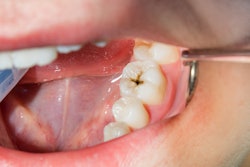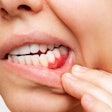
Adults in the U.S. are more likely to have untreated dental caries and severe tooth loss if they have lower levels of social support, according to a study that was published on June 11 in the Journal of Public Health Dentistry.
To address the oral health of people living with low social support, dental professionals and other healthcare providers, including social workers, should collaborate, the authors wrote.
“Higher odds of untreated dental caries and severe tooth loss were found among U.S. adults with low levels of social support compared to those with moderate-to-high levels of social support,” wrote the authors, led by Dr. Nadia Laniado, MPH, MS, of the department of dentistry/oral maxillofacial surgery at Jacobi Medical Center in New York.
In the U.S., research on the correlation between social support and oral health is sparse and hindered by differing definitions of social support and a lack of consistency in how oral health outcomes are measured. The most recent U.S. survey on social support measures in the U.S. -- the National Health and Nutrition Examination Survey (NHANES) -- was in 2008. A better understanding of these topics is important because the factors could inform age and culturally appropriate prevention strategies and interventions.
To explore the link between social support and untreated dental caries and severe tooth loss in U.S. adults, researchers conducted a cross-sectional study. The data of 5,447 people age 40 and older collected from NHANES responses from 2005 to 2008 were included. The patients had completed dental exams and social support index measures, according to the study.
Social support was measured in the following domains: emotional support, marital status, material support, and network size. Of the patients, the prevalence of low social support was nearly 28%. Compared to those who had moderate to high social support levels, individuals with low social support had 1.49 higher odds of untreated dental caries (95% confidence interval [CI], 1.17 to 1.90; p = 0.002) and 1.23 higher odds of severe tooth loss (95% CI, 1.05 to 1.44; p = 0.011), the authors wrote.
The study had several limitations, including that there were only two cycles of social questions available in the NHANES data, they wrote. To provide a more current view of the effect social support has on oral health, more studies need to be completed. Additional research can be used to develop programs customized for these patients, the authors wrote.
“Higher odds of untreated dental caries and severe tooth loss was found among working-age and older adults with lower levels of social support,” Laniado et al wrote.



















